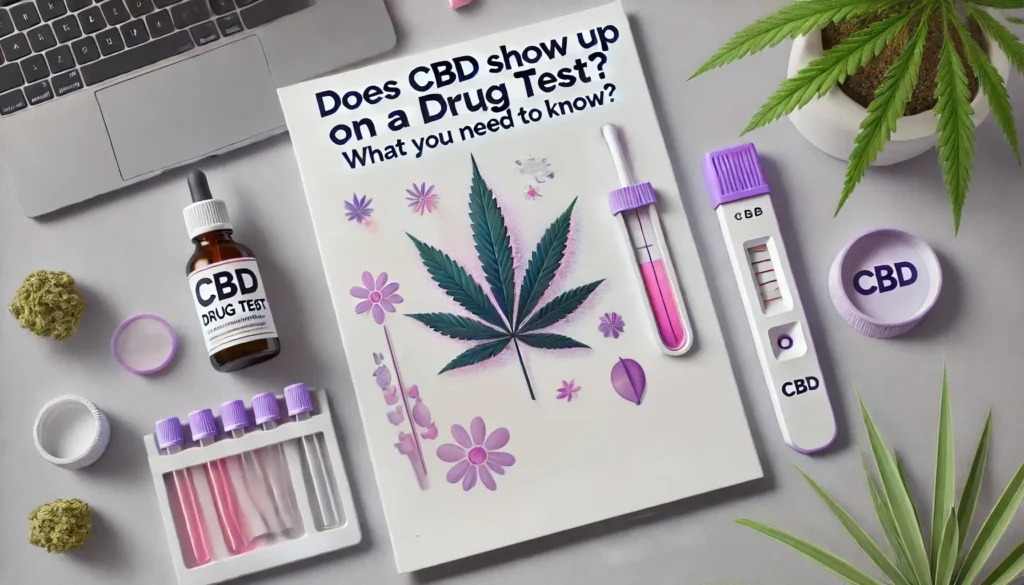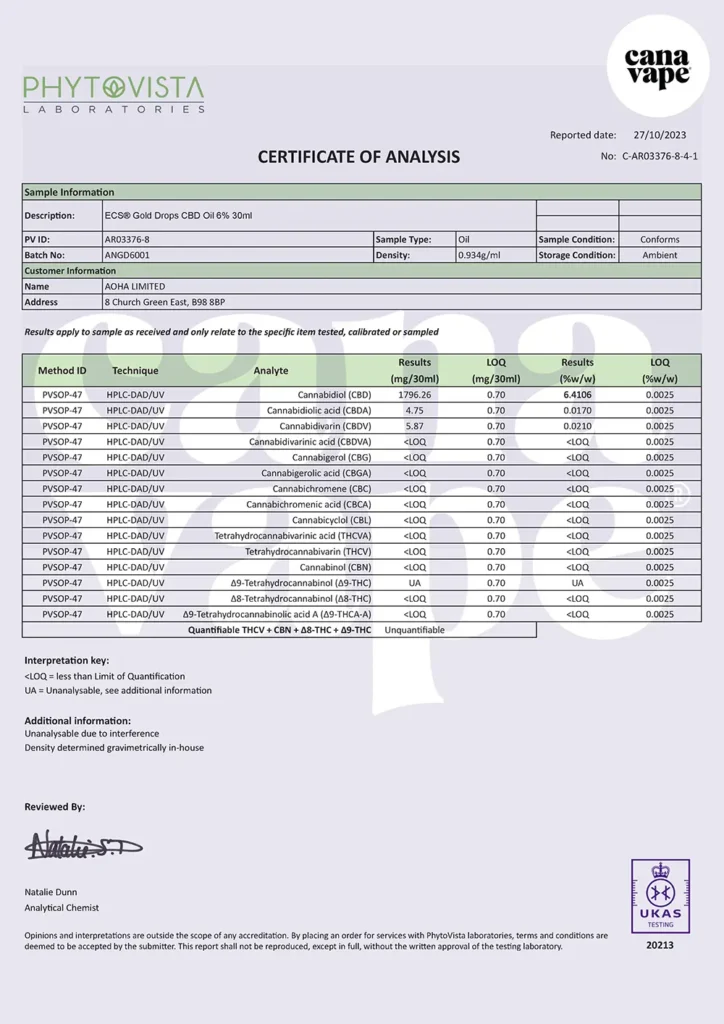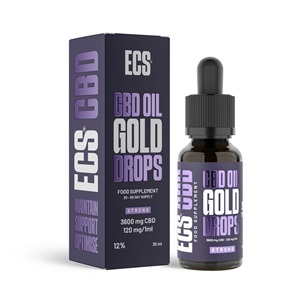
As the popularity of cannabidiol (CBD) continues to rise, many individuals are curious about its effects and implications, particularly concerning drug testing. A common query that surfaces is, “Does CBD show up on a drug test?” This question is critical for those who regularly undergo drug screenings for employment or other obligations. Understanding the nuances of CBD and how it interacts with these tests is essential, especially as misconceptions abound. In this piece, we will delve into the specifics of drug testing, how CBD is processed by the body, and what factors may influence the results of such tests. Join us as we explore the intricacies of this topic to provide you with clear, straightforward answers.
Cannabidiol, commonly known as CBD, is a chemical compound derived from the cannabis plant. Unlike its well-known counterpart, tetrahydrocannabinol (THC), CBD does not have psychoactive properties, meaning it does not produce the sensation of being “high”. This distinction makes CBD a popular choice for those seeking relief from conditions like chronic pain or anxiety without the mind-altering effects associated with marijuana. In the UK, CBD products are legal if they contain less than 0.2% THC. It’s commonly found in oils, capsules, and topical products. While CBD is largely considered safe and is used widely, its presence in cannabis means it often raises concerns in contexts where drug testing is involved. Understanding what CBD is helps clarify why many wonder, “Does CBD show up on a drug test?” – a pertinent question for those subjected to routine screenings.
When considering the question, “Does CBD show up on a drug test?” it’s essential to understand the various types of drug tests commonly employed. The most prevalent forms include urine, blood, saliva, and hair tests. Urine tests are the most widely used due to their simplicity and cost-effectiveness, typically detecting drug use within the past few days. Blood tests, while less common, provide a more immediate snapshot of substance use, ideal for determining current impairment. Saliva tests are gaining popularity for their non-invasiveness and ability to detect recent drug use. Lastly, hair tests can reveal drug use over a more extended period, often up to 90 days. Each type of test has different detection windows and sensitivities, influencing whether or not the presence of CBD or its metabolites might be identified. Understanding these differences is crucial for anyone concerned about drug testing and CBD use.
To address the question, “Does CBD show up on a drug test?”, it’s helpful to know how these tests operate. Drug tests function by detecting specific metabolites – the byproducts of your body processing a substance. For instance, THC-COOH is the primary metabolite tested for when screening for cannabis use. These metabolites are identified through chemical reactions that produce a measurable signal, indicating the presence of the substance. Most standard drug tests do not specifically look for CBD because it’s not considered an illicit substance. However, since CBD products can sometimes contain trace amounts of THC, there is a slight risk that THC could be detected. The sensitivity and specificity of the test, along with the type of test used, play significant roles in whether any THC present might be picked up. Therefore, understanding how drug tests work provides clarity on the potential risks and outcomes linked to CBD use.
Understanding the distinction between CBD and THC is essential when considering the question, “Does CBD show up on a drug test?”. CBD (cannabidiol) and THC (tetrahydrocannabinol) are both compounds found in the cannabis plant, but they have different effects and legal statuses. THC is the psychoactive component responsible for the “high” associated with cannabis use, and it is the primary target of most drug screenings. On the other hand, CBD is non-psychoactive and is not commonly screened for in drug tests. However, full-spectrum CBD products may contain trace amounts of THC, potentially leading to a positive drug test result. This is particularly true if consumed in large quantities or if the product is not well-regulated. Understanding this distinction helps clarify why drug tests focus on THC rather than CBD, and why the presence of CBD in your system is unlikely to cause a positive result, unless THC is present.
A common concern for those using CBD products is the possibility of a false positive result on a drug test. While drug tests are designed to detect specific substances, they can sometimes yield inaccurate results. A false positive occurs when a test mistakenly identifies a compound as a prohibited substance. In the context of CBD, this typically relates to the presence of THC in CBD products. Even trace amounts of THC, which may be legally present in full-spectrum CBD products, can potentially trigger a positive result for cannabis use. Factors such as the sensitivity of the test, the frequency of CBD use, and the quality of the CBD product can all influence the likelihood of a false positive. To minimise this risk, users might opt for CBD isolates or broad-spectrum products, which are generally THC-free. By understanding these dynamics, individuals can make informed decisions about their CBD use and its implications for drug testing.
Several factors can influence whether CBD might show up on a drug test, primarily through the inadvertent detection of THC. Firstly, the type of CBD product used is critical. Full-spectrum products contain all cannabinoids, including trace amounts of THC, which could lead to a positive result. In contrast, CBD isolates and broad-spectrum products are generally THC-free, reducing this risk. Secondly, the dosage and frequency of CBD use can play a role. Regular use of large doses of full-spectrum CBD increases the chance of THC accumulation in the body, raising the likelihood of detection. Additionally, individual metabolism and body composition can affect how cannabinoids are processed and eliminated, potentially impacting test results. Lastly, the sensitivity of the drug test itself is a significant factor; more sensitive tests are more likely to detect lower levels of THC. Understanding these factors can help individuals make informed choices about CBD use, especially when facing routine drug screenings.
In the UK, the legal status of CBD is distinct from that of THC, reflecting its non-psychoactive nature. CBD is legal provided it is derived from an approved industrial hemp strain containing no more than 0.2% THC. This regulation ensures that CBD products do not produce any mind-altering effects. Products must also be sold as supplements, not medicines, unless they have been specifically licensed as a medical product by the Medicines and Healthcare products Regulatory Agency (MHRA). Retailers must adhere to strict guidelines regarding labelling and advertising, ensuring no misleading claims are made about the therapeutic benefits of CBD. The presence of THC in CBD products remains a legal concern, which is why many consumers opt for broad-spectrum or CBD isolate products to avoid any potential legal issues. Understanding these regulations is crucial for both consumers and sellers to navigate the legal landscape of CBD in the UK effectively.
The use of CBD in the workplace raises important considerations, particularly regarding drug testing policies. In the UK, while CBD itself is legal, it can sometimes contain trace amounts of THC, which might lead to a positive drug test result. This poses potential challenges for employees, especially in industries with strict drug-testing protocols. Employers often test for THC as part of their substance misuse policies, not CBD. However, if an employee tests positive for THC due to CBD use, it could result in disciplinary action or even termination, depending on company policy. Employees concerned about drug tests should consider using CBD isolates or broad-spectrum products, which are typically THC-free. It is advisable for individuals using CBD to communicate openly with their employers about their use and provide third-party lab results verifying the product’s THC content, if necessary. Understanding both personal rights and employer policies can help navigate the complexities of CBD use in professional environments.
In the UK, medical CBD prescriptions are available under certain conditions, reflecting growing acceptance of its therapeutic potential. Since November 2018, specialist doctors have been able to prescribe cannabis-based products for medicinal use, including CBD, when deemed clinically appropriate. This means that patients with specific conditions such as severe epilepsy or multiple sclerosis might receive a prescription for CBD as part of their treatment plan. These prescriptions are tightly regulated and typically only considered when conventional treatments have failed. The availability of medical CBD ensures that patients have access to high-quality, safe products that are subject to rigorous testing. However, obtaining a prescription can be challenging due to the stringent criteria and the limited number of healthcare professionals authorised to prescribe cannabis-based medicines. Patients seeking medical CBD should discuss their options with their healthcare provider to understand the potential benefits and limitations within the current regulatory framework in the UK.
Selecting high-quality CBD products is crucial for ensuring they do not adversely affect drug test results. Quality products are usually characterised by transparency in labelling, third-party testing, and adherence to legal THC limits. When evaluating CBD products, look for those accompanied by a Certificate of Analysis (COA) from an independent laboratory. This certificate should verify the product’s cannabinoid content, ensuring that THC levels are within the legal limit of 0.2% or absent in the case of isolates and broad-spectrum products. Additionally, choose products from reputable manufacturers who provide clear ingredient lists and sourcing information. Avoid products with vague labelling or those that make unsustainable health claims. By prioritising quality, consumers can minimise the risk of inadvertently consuming THC, which is crucial for those subject to drug testing. Making informed decisions about product selection not only ensures compliance with legal standards but also enhances the safety and efficacy of CBD use.
Understanding how to correctly read product labels is an essential step in ensuring CBD products will not lead to a failed drug test. Labels should provide comprehensive information about the product’s composition, including the type of CBD used—be it full-spectrum, broad-spectrum, or isolate. Full-spectrum products may contain trace amounts of THC, while broad-spectrum and isolates should be THC-free. Verify the cannabinoid content, ensuring it matches the claims made by the manufacturer. The label should also indicate the source of the hemp, ideally grown under strict farming standards to ensure a lack of contaminants. Additionally, check for batch numbers and expiry dates, which demonstrate the manufacturer’s attention to quality control. It’s advisable to cross-reference this information with a Certificate of Analysis (COA) from a third-party lab, which should be readily accessible either on the label or the company’s website. Being diligent about reading product labels helps consumers make informed choices and avoid complications with drug testing.

To minimise the risk of CBD affecting drug test outcomes, individuals can take several personal precautions. First, opt for CBD products that are broad-spectrum or isolates, as these are typically free from THC. It’s important to use products from reputable brands that provide third-party lab test results, confirming the absence of THC. Keep detailed records of the products used, including receipts and Certificates of Analysis (COA), as these can serve as evidence if questions arise during an employer’s drug testing process. Additionally, understanding your body’s metabolism can be helpful; some people may process cannabinoids more slowly, affecting how long they remain detectable. If you know a drug test is forthcoming, consider reducing or pausing CBD use to eliminate any potential risks. Lastly, maintain open communication with your employer about your CBD use, especially if it’s for health purposes, to ensure transparency and address any concerns proactively. Taking these steps can help ensure peace of mind during drug testing scenarios.
For individuals concerned about drug testing, THC-free CBD options offer a viable alternative. Broad-spectrum and CBD isolate products are specifically designed to be free of THC while still providing the potential benefits associated with CBD. Broad-spectrum CBD contains a range of other cannabinoids and terpenes, which can enhance the overall efficacy through the entourage effect, without the presence of THC. On the other hand, CBD isolate is the purest form of CBD, containing no other cannabinoids or plant compounds, making it an excellent choice for those who want to avoid THC entirely. When choosing THC-free products, it’s crucial to verify their composition through third-party lab reports, ensuring there is no detectable THC. These options provide peace of mind for those subject to regular drug screenings, allowing them to benefit from CBD without the risk of testing positive for THC. By opting for these alternatives, users can maintain compliance with workplace drug policies while still supporting their wellness goals.

Before integrating CBD into your routine, particularly if drug testing is a concern, consulting with healthcare and legal professionals can provide valuable insights. Healthcare professionals, such as doctors or pharmacists, can offer guidance on whether CBD is appropriate for your health needs, taking into account any potential interactions with medications you are currently taking. They can also help you determine the right dosage and form of CBD that suits your health objectives. On the legal front, seeking advice from solicitors specialising in drug laws and employment can clarify your rights and obligations concerning CBD use. They can provide advice on how to communicate effectively with employers about CBD use and help you understand the implications of drug testing policies in your workplace. Consulting with professionals ensures you make informed decisions about CBD use, safeguarding both your health and employment status. This proactive approach reduces the risk of complications down the line, providing peace of mind.
The landscape of CBD and drug testing is likely to evolve as awareness and legal frameworks around CBD continue to develop. Advances in testing technology may soon allow for more precise differentiation between THC and CBD, reducing the likelihood of false positives. As research into cannabinoids expands, we may also see the development of new testing protocols that can specifically identify and quantify various cannabinoids without conflating them with illegal substances. Furthermore, ongoing legislative changes could lead to more comprehensive regulations and clearer guidelines for both consumers and employers, simplifying the use of CBD. Employers might also adapt their drug testing policies to reflect the growing acceptance of CBD as a legitimate therapeutic aid. This evolution could result in less stringent testing for THC in jurisdictions where CBD is legal, providing more freedom for individuals to use CBD products without fear of professional repercussions. The future holds promise for a more nuanced approach to CBD and drug testing, benefiting both users and employers.